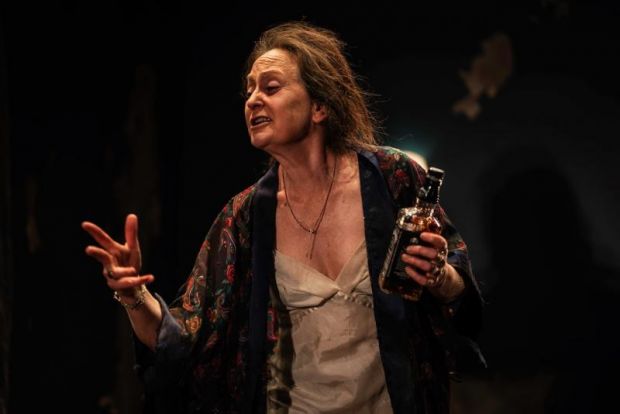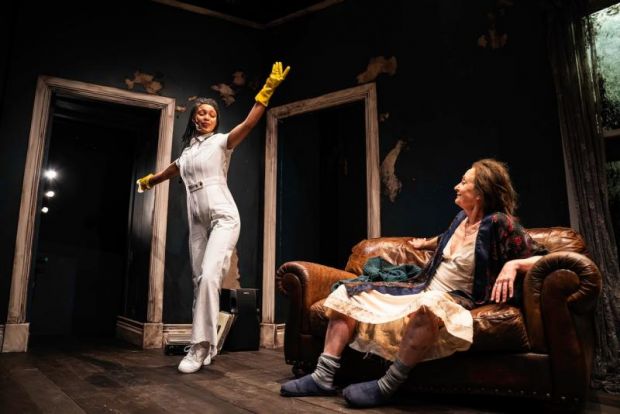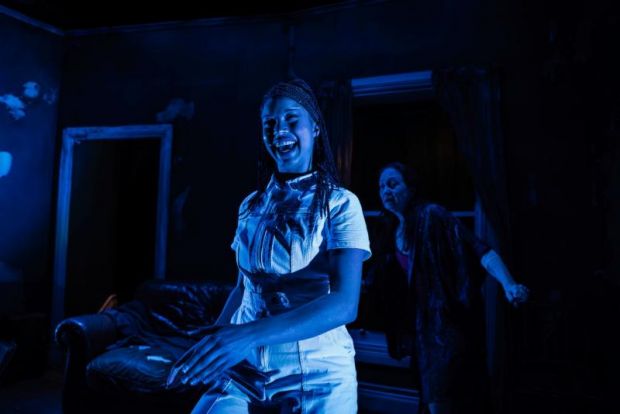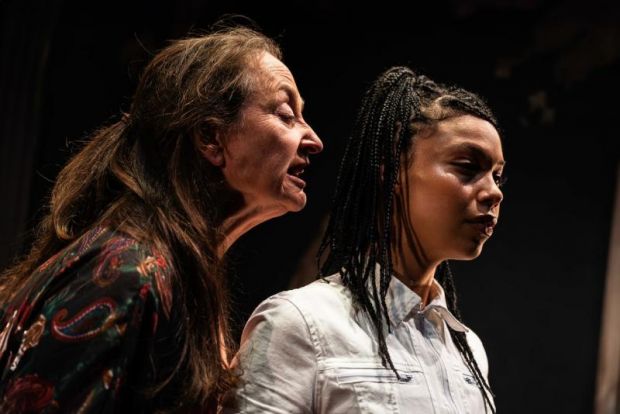Your Name Means Dream
In a near dystopian world, an ageing widow rebuffs her robotic carer because it is devoid of human emotions. Your Name Means Dream, written by Jose Rivera, tackles the problems of Artificial Intelligence and the effects it has on people. He began writing his new play only months before the pandemic, back in 2020.
Elon Musk recently announced that Tesla Optimus Robotic will be available for purchase as early as next year. Rivera explores human relationships with robots, tackling such issues as identity, memory and emotion. Directed by Kat Henry, the new Red Stitch production is shockingly entertaining and mind-bogglingly valid in a new burgeoning technocratic society.
Aislin (Caroline Lee) lives in the East Village, New York City, her dishevelled appearance reflecting her crumbling abode. A ‘female’ programmed robot named Stacey (Lucy Ansell) has been assigned by her son Roberto to care for her. Yet Aislin yearns for real human connection; frustrated by Stacey and her automated responses, she feels that she may as well be talking to the toaster. Aislin maintains her disgruntled objections to the ‘machine that can be turned into a pile of paper clips at any time, who quotes Walt Whitman on a whim and who has no human emotion.’
 Stacey, with a data base rich in information, is there to appease and entertain her. Stacey’s body memory as a sex worker begins to intrigue Aislin, who is slowly deteriorating mentally and physically. Aislin who carries deep seated regrets about her own life, having never fulfilled her dream to travel to Tibet, forsaking her career for a checkered husband and now never seeing her son (except for voice calls via Stacey) and complains that she never spends time with her grandchildren. Stacey becomes her only confidante, and purely out of need, she gradually bonds with her.
Stacey, with a data base rich in information, is there to appease and entertain her. Stacey’s body memory as a sex worker begins to intrigue Aislin, who is slowly deteriorating mentally and physically. Aislin who carries deep seated regrets about her own life, having never fulfilled her dream to travel to Tibet, forsaking her career for a checkered husband and now never seeing her son (except for voice calls via Stacey) and complains that she never spends time with her grandchildren. Stacey becomes her only confidante, and purely out of need, she gradually bonds with her.
Stacey struggles with the concept of emotion, trying her best to come to terms with the simple notion of ‘beautiful’, a cheery debate she continually has with the cantankerous Aislin. In the second act when Stacey is hacked, causing her to have a mechanical seizure (superbly performed by Ansell), Aislin is forced to question the meaning of having her in her life. When Stacey grooms Aislin, there is almost a mother daughter connection and Aislin feels that although the ‘toaster’ might be all she has, it beats being sad and lonely, or having to face death on one’s own.

The set (designed by Hahnie Goldfinch) reflects a neglected, down-and-out space (Aislin’s apartment) with sparse yet with carefully placed props such as the record player; when Aislin wants to escape and connect with herself, she listens to soulful music because it is the only thing that makes her feel real and alive.
While Stacey has a data base memory and a history and will inevitably be melted down by AOS-Singularity (the company that owns and runs the robot enterprise), she learns to understand the human emotion and what makes a soul - and thinks she might just know what makes ‘beautiful’.

Both actors give stellar performances, Lee is convincingly soulful, ragged and honest, and Ansell is seamlessly flawless in her staccato robotic movements and diverse voice range. This dynamic duo are the energy and force in this show, delivering perfection, and offering the audience entertainment that is both insightful, heart wrenching and strangely provocative.
Directing a great team of creatives, Henry has masterfully delivered a powerhouse show that questions what it means to be human in a world where hyper-techno is encroaching.
Flora Georgiou
Photographer: James Reiser
Subscribe to our E-Newsletter, buy our latest print edition or find a Performing Arts book at Book Nook.

